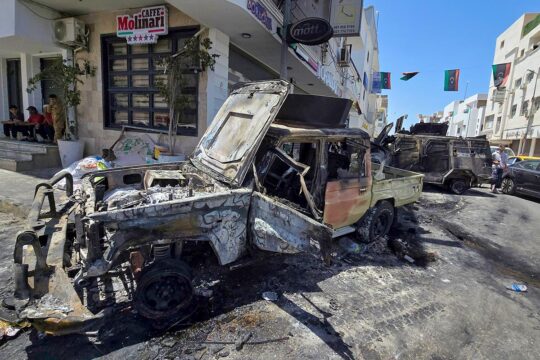“The Special Criminal Court has a mandate to try the most serious crimes committed on the territory of the CAR, and so contribute to ending impunity in this country,” said Hyacinthe Gbiegba, Vice-President of the transitional parliament’s Interior, Legislation and Administrative Affairs commission.
The law was adopted with 82 votes in favour, one against and 5 abstentions. The Special Court is to be composed of 27 judges, including 14 Central Africans and 13 internationals. Its President will be Central African, while the prosecution is to be led by a foreigner.
“For nearly 20 years, the Central African Republic has been through violent, cyclical crises,” says Gbiegba, explaining the need for the Special Court. “The most recent is the conflict between the Seleka and Anti-balaka, who loot, rape, kill and burn down whole villages. This is why we hail the courage of the government, supported by the international community, in proposing this law to create the Court.”
The Special Court will try those suspected of the most serious crimes. “We are talking about war crimes such as rape, forcing children to become child soldiers, and massive and repeated attacks on non-armed civilian populations,” Gbiegba continued. He said this court would not take cases from the national courts, but rather complement them and move the fight against impunity forward.
Transitional government authorities have hailed the move. “I am happy the parliamentarians have understood they need to support us in creating this Court to fight against impunity,” says Justice Minister Aristide Sokambi.
“Our difficulty in applying the law is that there are no strong institutions. And the recent conflict that has ravaged our country has deprived us of the force to do so. That’s why our partnership with the international community to set up this special criminal court will allow us to exercise this power.”
According to the law adopted by the transitional parliament, the Court will be able to prosecute crimes committed from 2003, when François Bozizé staged a coup against Ange-Félix Patassé. The initial draft put the start date for crimes covered at January 1, 2012.
The next step will be to raise funds from the international community to make the Court a reality.
In September 2014, International Criminal Court Prosecutor Fatou Bensouda announced she was opening a second investigation into crimes committed in the Central African Republic since 2012. Following a preliminary examination, she said “the information available provides a reasonable basis to believe that both the Seleka and the Anti-balaka groups have committed crimes against humanity and war crimes”.
HM/FS/JC



